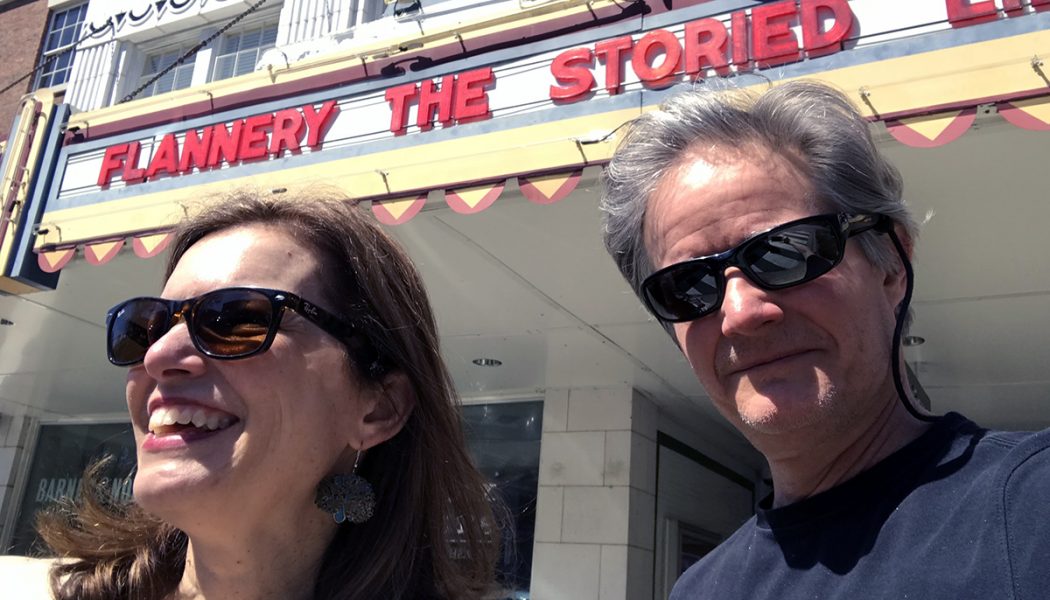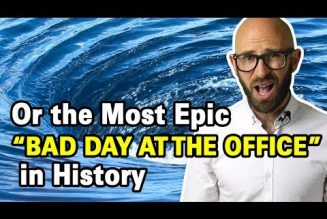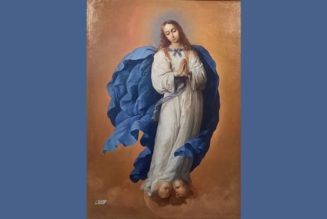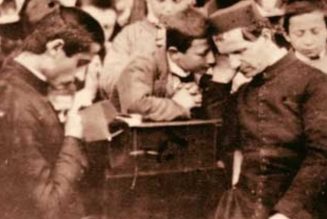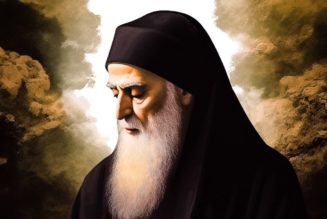When a northerner enters the Deep South, everything seems to slow. Maybe it’s the heat that halts the hurry, or the mint juleps that quell the quick.
I observed this several summers ago when two fellow Catholic writers and I visited Andalusia Farm in Milledgeville, Georgia, home of famed Catholic novelist Flannery O’Connor. And I rediscovered it during an exclusive interview with the writers-directors of the new, award-winning documentary, Flannery.
By phone this time, I was invited to pause and ponder, discovering, in the dallying discourse with Jesuit Father Mark Bosco and Elizabeth Coffman, a gift — and one especially notable in these days of “cancel culture.”
Recently, O’Connor was “removed” by a university after racist wording showed up in some of her newly-uncovered writings. Despite the wrongness of the words, the writers-directors indicate O’Connor deserves a fair hearing.
Bosco, who teaches O’Connor’s work at Georgetown University, offered important context, noting that O’Connor, who died in 1964, “grew up and witnessed the dismantling of the Jim Crow South,” and “lived in her own white privilege and assumptions.” But she also “knew how to interrogate those.”
Even now, as his students are “diving into her life,” and he’s rediscovering “an artist who is really honing her craft and speaking to the brilliance of a short story,” he sees a “great craftsman… also dealing with questions that are still very much in our consciousness today.”
Her work, he said, illuminates the interplay of religion in both artistic and cultural conversations of modern times.
Including on the topic of disability, which O’Connor, a sufferer of lupus — the disease that claimed her father when she was 15 and ended her own life at 39 — understood all too well.
“She was on crutches for the last eight or nine years of her life,” Bosco said, noting that, more than ever, “we’re talking about disability and what it means to be in this mode of life and how you are ‘othered’ in that regard.”
As we worry over the polarization of our world and nation, we again can turn to O’Connor, he said. In both her letters and stories “we find an example that we haven’t gone too much further in progress, and yet we see her struggles,” and in them, a worthy response for us here and now.
“In some ways, you have to say it’s a tragedy that (her work) is still so appropriate today,” Coffman said, “and at the same time, this is what great literature does. It demonstrates its relevance,” as we witness our own “unraveling.”
But O’Connor gives us an antidote, Bosco said, offering, in her letters especially, “this simple but clear and wonderful kind of catechesis of why faith matters — and why it matters in art — and how a vision of faith grounds you in who you are.”
While his students are “chewing on O’Connor’s epistolary work,” Bosco said, he’s finding it fascinating how, even in her letters, “she speaks in such a friendly and intimate way — about faith, about politics, about friendship.”
Far from being a divider, he sees her a unifier. “She’s someone who’s so aware of herself, and her need to grow in her faith, that in some ways it’s as if she’s ‘recovering from her racism’ …and those places that can be polarized that are categorically wrong,” Bosco said, adding that, above all, “She understood herself as a sinner loved by God.”
In corresponding with people of all persuasions and personalities, including those at odds with her beliefs, O’Connor demonstrates something our current culture needs. “The way that she can write and be a friend to all says to me that she is definitely someone who can reconcile,” Bosco said. “She listens to her friends, she responds, and I think her stories keep asking those questions about what’s really important… and how you can enter into the mystery of life.”
In her fiction, Coffman said, O’Connor often introduces “people who do not conduct themselves very well,” but in her letters, we get a sense of her calmness and courage in the face of difficult circumstances. “This is where she feels so appropriate right now.”
Her faith was what helped her endure, Coffman said, “bravely… with talent” as she “faced down her own illness, and in thinking through questions of oppression and racism and stereotyping.”
Even as death hovered, O’Connor persevered in that faith, Coffman said, adding that “the way she endures, is, I think, as inspiring to a secular audience as to an audience of faith.”
O’Connor had once claimed as her main audience “those folks who don’t believe in God,” Bosco reminded. “She’s someone who was convinced that a transcendent God loves and calls both her and her characters,” and wrote for everyone, including “the uninformed or un-catechized, or people who have basically gone on with life,” he said. “And in all this, she has this authentic kind of voice.”
In receiving the first-ever Library of Congress/Lavine Ken Burns Prize for Film for Flannery, Bosco had remarked that O’Connor’s stories “vividly portray narratives of cultural conflict in a nation still haunted by religious belief.”
Expounding on this concept in our conversation, he explained that O’Connor, a daily Mass attendee with a grasp on the Incarnation, and “this idea that our bodies and how we deal with them are important… seemed to be saying that, rather than being Christ-centered, we are a “Christ-haunted people;” haunted “by the fact that there’s something greater, and that there’s something mysterious going on. But we’ve kind of lost the thread. We’ve lost our way.”
O’Connor’s stories, Bosco added, “shake us up and remind us that there is a kind of spiritual journey” that we’re engaged in, and that something greater is happening, even as her characters reveal to readers that “sometimes, in their own foolishness, they can’t see it.”
She found the energy and nourishment for the strenuousness of this work through the sacramental life of the Church, Bosco observed. “That kind of fed her vision,” along with her talent as an artist with a gift to “open this up to everyone, by telling them the stories of characters in almost parable-like ways.”
Coffman said she finds O’Connor’s most endearing quality “her sense of being the smartest person in the room,” while, at the same time, in her fiction, “she takes down those who ‘know it all.’”
Both hope the film will inspire more people to seek out O’Connor’s stories, for in them, Bosco said, we find ourselves, along with our assumptions and comeuppance, and the lesson that “every time we think we can master our own life or anybody else’s, life’s going to come up and say, ‘No you don’t.’”
“There’s just something about the integrity of those stories,” he concluded. “It’s quite beautiful.”
The “Flannery” film, released in October 2019, can still be viewed for a limited time at virtual theaters, as noted at www.flanneryfilm.com, and in a shorter version through PBS stations in early 2021.



